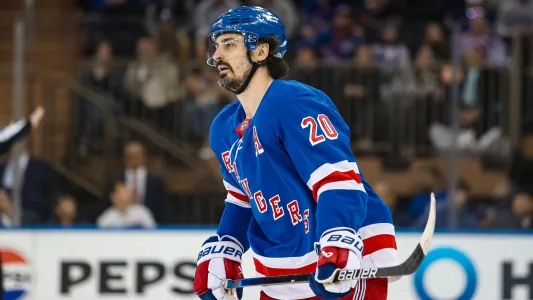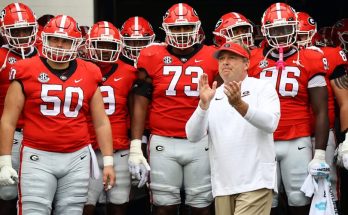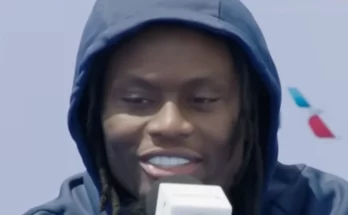When the news broke that Chris Kreider had been traded from the New York Rangers to the Anaheim Ducks, it sent shockwaves throughout the NHL. A cornerstone of the Rangers for over a decade, Kreider wasn’t just a veteran leader—he was a symbol of stability, loyalty, and intensity at Madison Square Garden. So, when the deal was finalized, fans, analysts, and even some players were left speechless, scrambling to understand why the Rangers would part ways with one of their most beloved figures. On the surface, it seemed like a strategic rebuild or a cap-clearing move. But according to one of Kreider’s new Ducks teammates, the truth runs much deeper—and it’s not what most people expected.
Kreider had always been known for his ability to power through defenses, his fearlessness around the net, and his invaluable locker room presence. Drafted 19th overall by the Rangers in 2009, he spent his entire career in New York, accumulating over 270 goals and becoming a fan favorite thanks to his blue-collar work ethic and clutch performances. But as with many long-standing careers, cracks began to appear beneath the surface—cracks that wouldn’t become fully visible until after the trade. According to the unnamed Ducks player who spoke anonymously, the decision to trade Kreider wasn’t rooted in performance but in a simmering disconnect between the veteran and the Rangers’ evolving locker room culture.
The Ducks player described how Kreider arrived in Anaheim with a blend of relief and exhaustion, hinting at months of behind-the-scenes frustrations that never leaked to the media. “He never said a bad word about the Rangers in public, but you could tell there was tension,” the teammate said. “There were philosophical differences between him and the coaching staff. They wanted to go in one direction with their young guys, and Kreids didn’t exactly see eye-to-eye with how that was being handled.” The comments suggest a growing gap in vision between Kreider and New York’s front office, especially as the team leaned further into youth development and modern analytics-driven strategies.
The Rangers have been undergoing a quiet identity shift in the past couple of seasons, especially under the leadership of head coach Peter Laviolette. While the core still boasts veterans like Artemi Panarin and Mika Zibanejad, there has been a clear push to develop younger talents like Alexis Lafrenière, Kaapo Kakko, and K’Andre Miller. Laviolette, known for his structured systems and strong emphasis on responsibility at both ends of the ice, is reportedly a stickler for positional discipline. That, according to reports, may have clashed with Kreider’s more instinctive, north-south style of play. Though he still put up decent numbers last season, his minutes were occasionally reduced in crucial situations, and whispers emerged about him not being “as coachable” as he once was.
The Ducks player went on to reveal that Kreider had taken issue with what he saw as inconsistency in the organization’s commitment to its veterans. “He felt like the guys who had been around and done the heavy lifting for years weren’t being respected,” the teammate noted. “It wasn’t just about ice time. It was about voice. He felt like his voice in the room didn’t matter the same way anymore. And that’s hard when you’ve been a leader there for so long.” This sense of marginalization reportedly began last season and worsened over the summer, culminating in what was described as a “mutual understanding” that a change of scenery was needed.
Kreider was no stranger to adversity during his time with the Rangers. From injuries to playoff heartbreaks, from captaincy debates to trade rumors that swirled nearly every deadline, he remained a professional through it all. But this time, the writing was on the wall, and according to the Ducks insider, Kreider was the one who initially broached the subject of a potential move. “He didn’t demand a trade,” the player clarified, “but he made it clear to people in the front office that if they were moving in a direction where he didn’t fit, he wasn’t going to stand in the way. He said, ‘Let me go where I can still make a difference.’ That’s exactly what Anaheim wanted to hear.”
Anaheim’s acquisition of Kreider wasn’t just a splashy headline; it was a strategic move by general manager Pat Verbeek, who saw in Kreider the exact mix of leadership and edge his young squad needed. With talents like Mason McTavish, Leo Carlsson, and Olen Zellweger on the rise, the Ducks needed a veteran who could not only produce but mentor. Kreider, at 33, fits that mold perfectly. And according to his new teammates, he’s embraced the opportunity with open arms. “You can tell he’s re-energized,” said the Ducks player. “He’s all-in, helping guys in drills, staying late after practice. It’s like he’s got something to prove again, and that’s dangerous for the rest of the league.”
Interestingly, Kreider himself has remained publicly reserved about the specifics of his Rangers departure. In his brief introductory press conference with Anaheim media, he thanked the Rangers organization and fans for “an unforgettable journey” and said he was “excited for what’s ahead.” Still, between the lines, there was an unmistakable undertone of closure and quiet disappointment. When asked directly whether he expected to retire as a Ranger, Kreider paused, smiled faintly, and said, “I used to think that was how it would end. But hockey doesn’t always follow the script.”
From New York’s perspective, moving Kreider also clears significant cap space and allows greater flexibility to invest in its future core. But what’s harder to measure is the emotional vacuum left behind. Teammates like Adam Fox and Igor Shesterkin have spoken fondly of Kreider’s mentorship, and younger players credited him as a steadying influence in times of chaos. That kind of leadership isn’t easily replaced, and while the Rangers have no shortage of talent, it remains to be seen how the locker room adjusts to the absence of a player who, for many years, was the heartbeat of the team.
Meanwhile, Kreider’s arrival in Anaheim has already started to shift the tone within the Ducks’ locker room. “He holds guys accountable,” the Ducks player shared. “Not in a loud way, but in a very deliberate way. If you’re coasting in a drill or checking out mentally, he’s the guy who pulls you aside and calls you out quietly. That’s the kind of leadership we didn’t have before. It’s not about yelling—it’s about standards.”
As for the fit on the ice, Kreider is expected to slot into the Ducks’ top six and see significant power play time. His net-front presence, physicality, and ability to create chaos in the crease are precisely what Anaheim has lacked in recent seasons. With the Ducks aiming to take the next step out of their rebuild, Kreider’s presence could accelerate that process—not just statistically, but culturally.
For Kreider, this next chapter offers something rare: a chance to reframe the end of a legacy. While his Rangers story may not have concluded the way he envisioned, Anaheim offers a fresh canvas, a youthful locker room eager to learn, and a fan base that has already embraced him. The wounds from his exit in New York may take time to heal, but in Southern California, he’s not looking back. “He’s not bitter,” the Ducks player said. “But he’s motivated. He wants to show everyone that he’s still got a lot of hockey left—and he’s not done writing his story.”
In professional sports, trades often get boiled down to contracts, numbers, and production curves. But behind every deal is a human story—of identity, purpose, and pride. For Chris Kreider, the move to Anaheim wasn’t just a transaction. It was a necessary evolution, a pivot toward something new after a chapter that, while storied, had run its course. As the NHL season unfolds, fans in Anaheim will watch eagerly to see what their new power forward can bring. And in New York, as the Rangers pursue their next era, the echoes of Kreider’s leadership will remain—quiet reminders of a player who gave everything until it was no longer enough.



